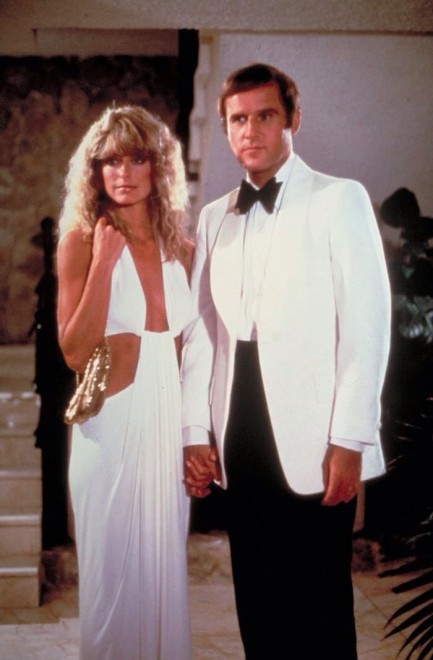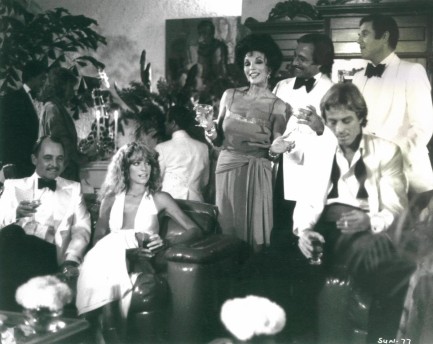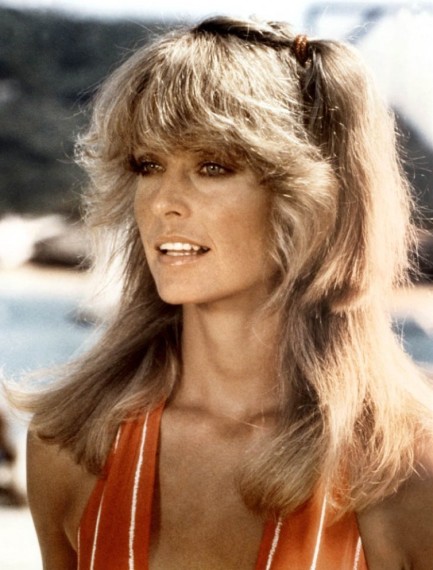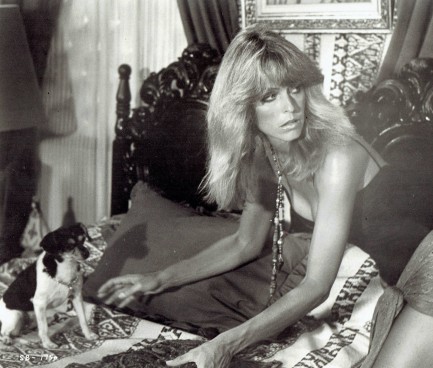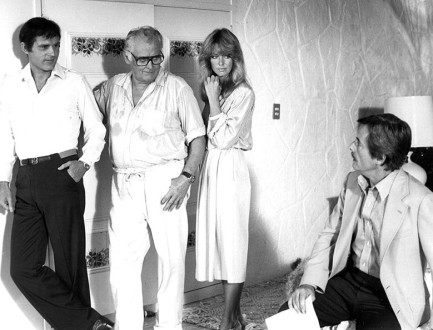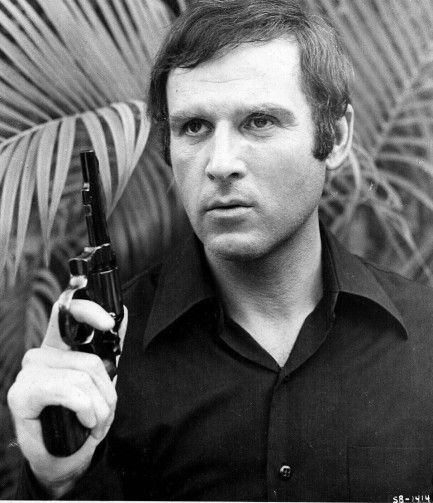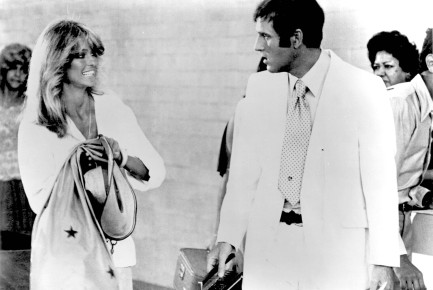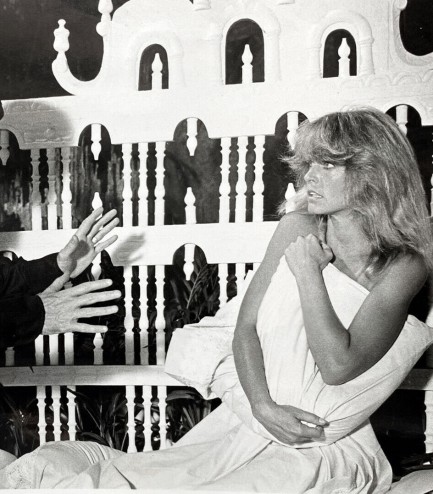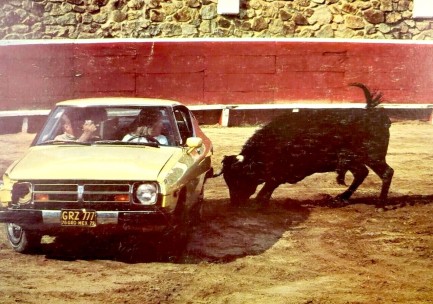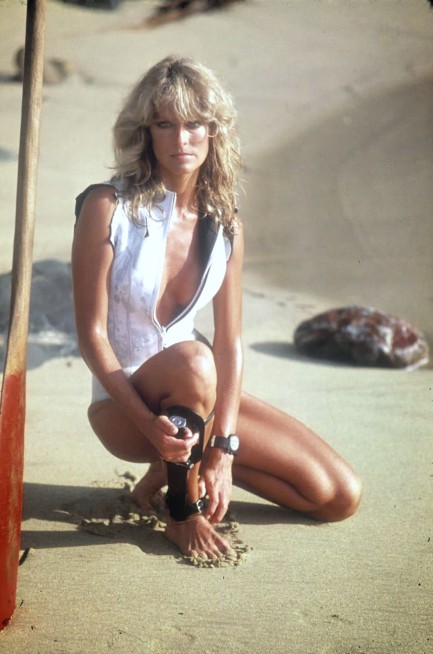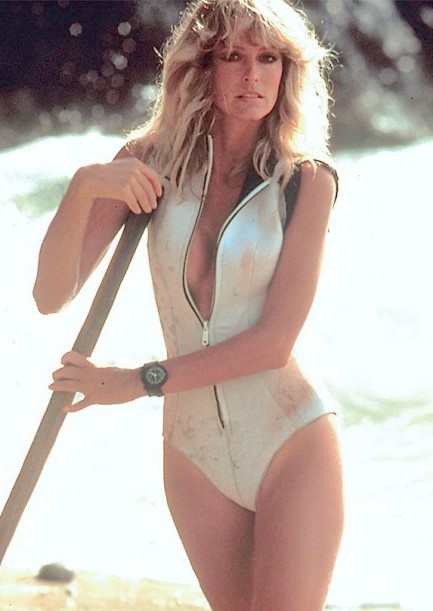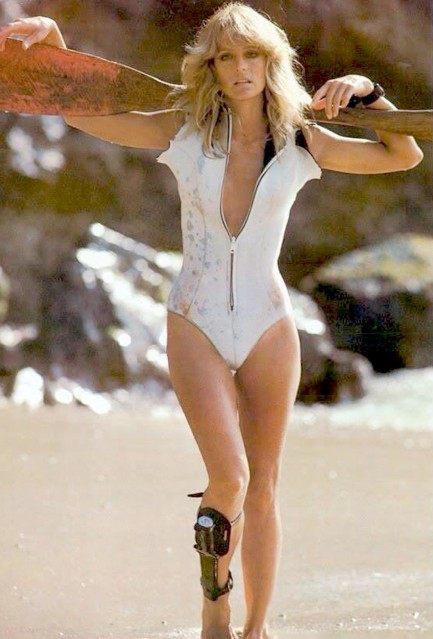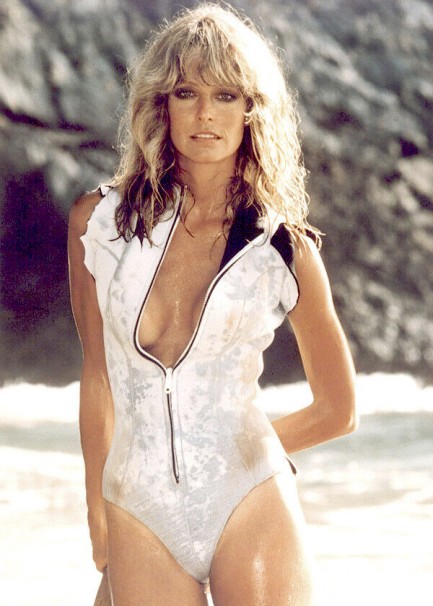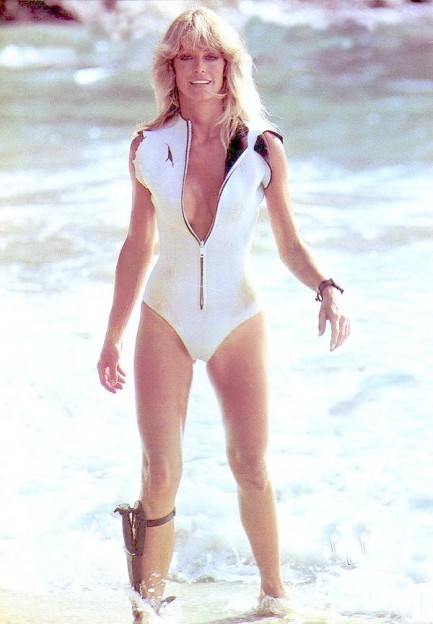
The people who got burned the worst were the movie's investors.
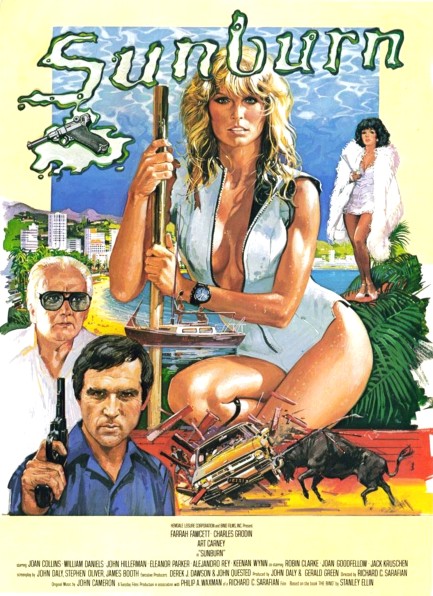
As we mentioned back in the spring, we started watching Sunburn, but stopped ten minutes in to backtrack to Stanley Ellin's source novel first because we thought the concept of an investigator hiring a woman to pose as his wife might be fun in written form. It was that, but the book wasn't perfect, as we discussed. Returning to the movie, above you see a painted promo poster, uncredited, though pretty nice, even if the central figure doesn't look as much like the star attraction as she should. But you recognize her anyway, right? That's Farrah Fawcett, or supposed to be, who headlined along with Charles Grodin, the latter of whose presence immediately marks the movie as a non-drama. But we forged ahead anyway to see what he, Fawcett, and co-stars Art Carney and Joan Collins could provide.
Sunburn, it must be said right off, flopped at the box office. That isn't definitive proof of a bad movie, but it's suggestive. The novel's premise and plot were retained: insurance investigator Grodin needs to get close to a rich Acapulco family in order to prove fraud, therefore he rents the villa next door and hires Fawcett to smooth his cover story by playing his wife. What's added that wasn't in the book is a thick layer of slapstick and Grodin's “comedy.” Fawcett is sunny, ingenuous, and sexy without guile, which was basically her brand, and it works as expected—wonderfully—but there's definitely no spark between her and Grodin. We don't think we've seen a woman's lips that tightly closed for a kiss since PI-1 lost a bet and had to smooch a friend's slobbery German boxer. As for the other participants, Carney finds himself in a wise old advisor role that fits, but Collins is wasted as a farcical nympho cougar.
Basically, the movie can be summed up this way: Grodin stumbles and bumbles his way through an investigation, Fawcett gives unsolicited and unappreciated help, and the plot veers inevitably toward reliable woman-in-danger tropes, buttressed by a standard cheeseball car chase that ends up going through a random fruit stand, round the inside of a colonial fortress, and into a bullring. The chase is capped by Fawcett's capture, which naturally leads to a chaotic rescue and a pat conclusion. From beginning to end the filmmakers whiff on all the good music of the late ’70s, which means the too-present soundtrack consists of only the worst pop hits of the era. Unhelpful, to say the least, and a lesson on the downside of using popular music on soundtracks.
We don't watch many movies from the late 1970s that aren't hard dramas, and Sunburn reminded us why—comedic acting from that time can be very idiosyncratic, and Grodin in particular hadn't yet perfected his distracted deadpan superior-attitude schtick. But if you get the feeling we disliked the movie, you'd be wrong. Its very obviousness makes it worth a smile. And we liked it a lot better than did our new consulting critic, Angela the sunbear, who'll mostly be advising us behind the scenes but may occasionally make a public appearance or two, depending on her mood. Today, she's feeling social. Give the Pulp Intl. readership a wave, Angela.

Very good. And nice work standing on two legs. You look almost human, if that isn't offensive to say. Anyway, we could ask Angela to enumerate her many qualifications and credentials to critique cinema, including her degree from the Beijing Film Academy, but we assume you trust us to collaborate with only the most experienced and educated professionals. Also, it's 100 degrees where she lives, so she won't suffer an entire film unless it's really good. In this case, she waited about twenty minutes to see if any of her favorite fruits or wild berries made an appearance, discoursed on the tradition of comedians becoming actors (somehow tying in the Greek muses of comedy and drama—Thalia and Melpomene—which was way over our heads, if we're honest), pondered whether Grodin might get mauled at some point, then went for shade and water. So there you have it: Sunburn gets one reluctant thumbs up, but one definitive claw down. It premiered today in 1979.